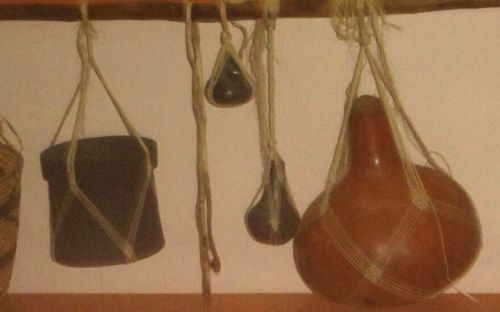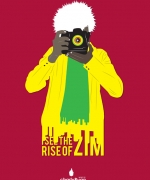Women of Ankore
In Ankore, women/ mothers are a great treasure. A home / house without a woman/ wife is a shame. Bany’ankore fear being ashamed hence the ankole saying that “I rather die instead of being ashamed.”It is prestigious to be married in Ankore. Women are not allowed to do hard work like fetching water, herding and milking cattle, fetching food from the garden, this kind of work is done by men and children mostly grown up boys. Women are supposed to stay at home take care of the house and other simple household chores like cooking, washing and cleaning around the house.
In Uganda, a country found in east Afrika there are a lot of good and interesting things to talk about, the good weather, rivers ( river Nile) lakes ( lake Bunyonyi and lake Victoria) hot springs( Kitagata hot spring), national parks with almost all animal species, and most importantly the cultures. Hence the slogan “ Uganda the pearl of Afrika”
This time, of all the flora and fauna of Uganda I would like to share with you about the beautiful Ugandan culture. In the pearl of Afrika there are many cultures which are very well treasured, loved, respected and followed from age to age, young and old by its respective people.
In Uganda the cultures differ from region to region as well as the languages. Almost Each region speaks its own language different from the other and so are the cultures. These cultures include Baganda from Buganda region ( central Uganda), Basoga from Busoga region (eastern Uganda), Bacholi from Acholi region (northern Uganda) and then lastly Banyankole from Ankole region (western Uganda). To mention a few since there are other cultures in those subregions.
The above mentioned cultures differ a lot right from the way they eat, dress, live and marry. I will focus on the amazing and interesting Ankole culture.
Ankore is found in western Uganda and it covers thirteen districts which include Mbarara, Isingiro, Bushenyi, Ntungamo, Ibanda, Sheema, Kiruhura, Mitooma, Buhweeju, Rubirizi, Rukungiri, and others. Ankole is divided into two groups and these two groups are Bahima (cattle keepers) and Abeiru (cultivators) non cattle keepers. These two groups of bany’ankore behave differently in the way they eat, live and also speak though the words are the same, the pronunciations differ.
Abahima - The cattle keepers
Cattle are a treasure to this group of people. To have cows in Bahima is prestigious, you cannot marry a Muhima’s daughter if you don’t have cows because the question asked will be ‘what will she eat when she is married?’ Since milk, is their staple food, Bahima depend on milk and meat for food and family income. They also make a lot of things from cattle like yoghurt and ghee from shaking milk for about three days, this group of people own the biggest part of land in Ankore since it is needed for grazing. A single hima family can own thousands and thousand heads of cattle. This group of people cover most of Ankore districts including Isingiro, Mbarara, Ntungamo, Kiruhira, Rushere, to mention a few. A muhima boy when ready to marry tells his father who gets him cows according to how many the girls family has asked for and then a traditional marriage called okuhingira is held at the girls home which is meant to send off the girl officially for marriage, whereby the girls family in turn gives the new couple a lot of gifts including hundreds of cattle and other household items called emihingiro to help them start a family. The muhima men sleep outside to watch over the cows at night. They do not build permanent houses, they have temporary shelters since they are nomadic constantly looking for water and pasture for their animals.
Abeiru - The cultivators
They grow crops which include matooke, beans, ground nuts, Irish potatoes, sweet potatoes, cassava etc which are meant to be a source of income for the family and for domestic consumption. This group of bany’Ankole on the other hand when a boy is ready to marry, his father and family gets money according to what the girls family has asked for it can be 20 million ugx or even less and they take it to the girls family instead of cows and then the same cultural Ankole marriage function called okuhingira is held at the girls family to send her off officially for marriage which in turn a lot of material gifts and household items called emihingiro are given to the newly married couple.
Both bahima and abeiru women have the same dress code, which is an attire called omushanana or akasuti (dress, and long skirt with a cloth to cover her head. Whereas the men dress in a kanzu which are long
white robes.




